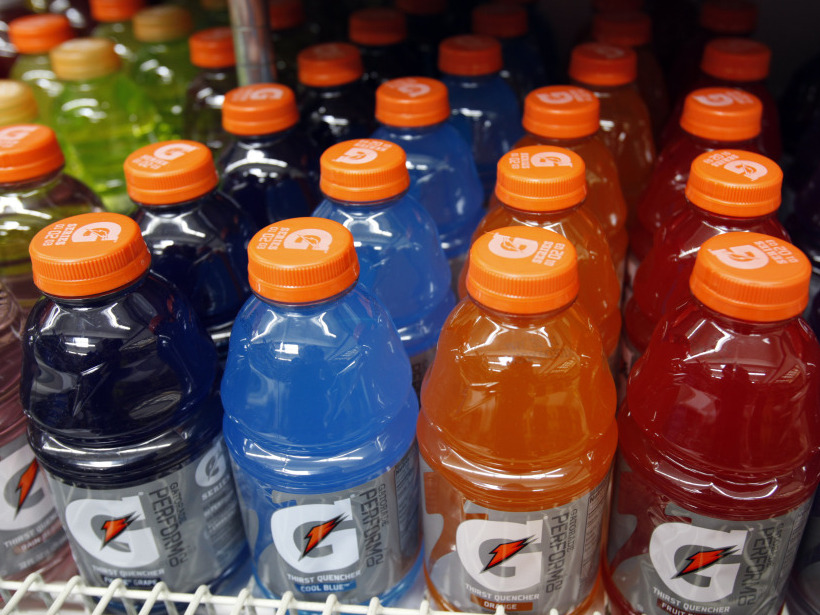- Empty cart.
- Continue Shopping
The Risks and Benefits of Children’s Energy Drinks

Energy drinks have become increasingly popular among children and adolescents in recent years. These highly caffeinated beverages claim to provide a quick energy boost and improved alertness. However, they also come with potential risks and health concerns, especially when consumed by young individuals.
Risks of Children’s Energy Drinks
- High Caffeine Content: Many energy drinks contain high levels of caffeine, often much more than a typical cup of coffee. Excessive caffeine consumption in children can lead to anxiety, restlessness, rapid heart rate, high blood pressure, and in severe cases, caffeine intoxication.
- Cardiovascular Effects: The stimulants in energy drinks can have adverse effects on the cardiovascular system, potentially increasing the risk of heart palpitations, arrhythmias, and other cardiac issues, particularly in children with underlying heart conditions.
- Sleep Disturbances: Consuming energy drinks, especially in the afternoon or evening, can disrupt a child’s sleep patterns, leading to difficulty falling asleep and reduced sleep quality.
- Dehydration: Energy drinks can act as diuretics, causing increased urination and potential dehydration, which can be particularly concerning for active children who may not be aware of their fluid needs.
- Sugar Content: Many energy drinks are loaded with added sugars, which can contribute to weight gain, tooth decay, and an increased risk of type 2 diabetes. High sugar intake can also lead to energy crashes once the initial surge wears off.
- Behavioral and Cognitive Effects: The combination of caffeine and sugar can lead to hyperactivity, inattention, and impaired cognitive function, which can be detrimental to a child’s focus and performance in school.
- Risk of Dependency: Regular consumption of energy drinks can lead to caffeine dependency, where children may feel they need the drinks to stay awake or alert, which can further exacerbate the health risks.
Potential Benefits
While there are risks associated with energy drinks, some potential benefits are often cited:
- Improved Alertness: Caffeine can temporarily enhance alertness and concentration, which may be beneficial for tasks that require sustained attention.
- Increased Physical Performance: Some athletes use energy drinks to boost endurance and physical performance, but these benefits are more relevant to adults and not typically applicable to children.
Safer Alternatives
If you’re concerned about the risks associated with energy drinks for children, consider these safer alternatives to boost their energy and alertness:
- Water: Staying hydrated is essential for energy and overall health. Encourage your child to drink plenty of water throughout the day.
- Healthy Snacks: Provide snacks that are rich in complex carbohydrates, fiber, and protein, such as whole-grain crackers with cheese or fruit with nut butter. These snacks can provide sustained energy without the sugar crash.
- Adequate Sleep: Ensure that your child gets enough sleep, as fatigue is often a primary reason for low energy levels. Establish a consistent sleep routine.
- Limit Caffeine Intake: Encourage moderation if your child consumes caffeine. Soft drinks, chocolate, and some medications also contain caffeine, so be mindful of total caffeine intake.
- Fruits and Vegetables: A diet rich in fruits and vegetables provides essential vitamins and minerals that support energy levels and overall health.
In Conclusion, Children’s energy drinks pose several health risks, including excessive caffeine intake, cardiovascular effects, sleep disturbances, and potential behavioral issues. While there may be situations where energy drinks could be considered, such as for athletes during intense physical activity (under medical supervision), the risks generally outweigh the benefits, especially for most children and adolescents. Encouraging a balanced diet, adequate sleep, and healthy hydration practices is a safer and more sustainable approach to supporting your child’s energy levels and overall well-being. Always consult with a healthcare professional if you have specific concerns about your child’s dietary choices or health.








